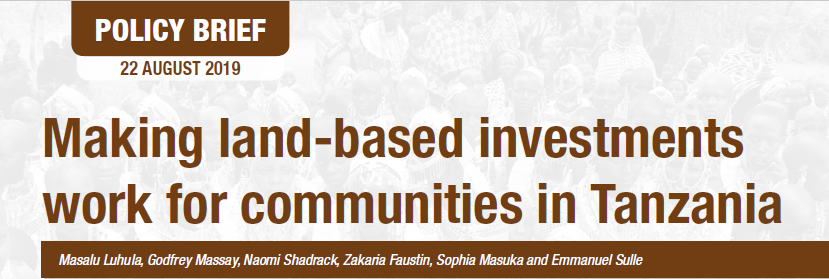SOCIAL ACCOUNTABILITY MONITORING (SAM) TRAINING: PASTORALIST CIVIL SOCIETY ORGANISATIONS, COMMUNITY INFLUENCIAL MEMBERS AND PASTORALIST NETWORKS AND WOMEN GROUPS.
Pastoralist Programme (PP) is one of the rangelands-focused programmes that TNRF administers. The programme is jointly implemented by TNRF and CARE and is a four year project funded by Irish Aid. TNRF’s involvement is mainly to provide policy, communication, technical support to the programme, facilitated engagement of national and international as well as enabling advocacy for partners lined up under Pastoralist Programme. Since 2012, the programme has supported more than 46 pastoralits CSOs in different capacities. In 2015, the progrmme provided grants to national advocacy NGOs (5) and local level NGOs (4) from pastoral districts.

It was learnt that CSOs that are receiving grants, pastoralist groups and their institutions are not in a position to actively engage in tracking of public fund allocated for improving livestock extension services due to the fact that they are not equipped with skills and capability.
Therefore, TNRF through Pastoralist Program Organized SAM training to some civil organizations, influencial community members, pastoralist’s networks and women groups at White Rose Hotel in Babati district – Manyara region from 21st September to 25th September 2015. The training aims to instill a workable mechanism for promotion of demand accountability for quality and efficient delivery of veterinary and extension services to pastoralists in the project area.
The training attended by 40(29 males and 11 females) CSOs officers, influential community members, pastoralits networks and pastoralits women groups. The participants were drawn from SHIMWAJAWA(Serengeti), CCWT(National Pastoralist Organ), MWEMA GROUP(Morogoro), CEDESOTA(National advocacy NGOs), TPCF(National Advocacy NGO), NAADUTARO(Kiteto), Pastoralists Women Council(Monduli), PINGO’S FORUM(National Advocacy NGO), COSITA(Babati rural, TAPGHO( National Advocacy NGO), and Care Tanzania.
In the opening sessions, the training was officially opened by TNRF Pastoralist Program Manager, Zakaria Faustin by highlighting to participants the objective of SAM training. He said the objective of this training is to equip newly partners and influential community members with skills on demand accountability through the use of Social Accountability Monitoring (SAM) as a tool that will then later used by the trained participants to impart and enhance pastoralists’ men, women, youth and their organizations understanding of the right ways for demanding and claiming for their rights form duty bearers
The training is facilitating by team of facilitators including Dr. Donald Kasongi(Lead Facilitator) and Nemes Irya(National SAM facilitator) and TNRF Staff(Zakaria Faustin – PP Manager, Magret Mollel-Website Officer, and supported by Jane Mkinga). It was further expected in day two, Dalika Julian, Monitoring and Evaluation Officer from Care Tanzania will share with participants the importance of seeking more information from local government to support demand for accountability.
During the introduction facilitators highlighted some key areas that should be covered in four days which are:
- Background to Accountability Social accountability and Social Accountability Monitoring
- Why Social Accountability Monitoring
- Human Right based Approach to development
- Social Accountability and Governance
- Group work on Social Accountability and Governance
- Social contract (Right holders and Duty bearers)
- Strategic citizen engagement
- SAM methodologies vs. context mapping
- Group work on methodologies
- SAM methodologies and Practical Pathways
- Social accountability -Thinking Theory of change
- Social Accountability outcomes
- Lessons from Social accountability interventions in Africa
- Group work -What is possible for pastoralist civil society
- Opportunities and challenges for Social accountability monitoring in Tanzania
- Reflections from the field
- Group work -Next steps for pastoralist Civil society and communities
- Facilitator’s summary
In day one, the following key issues were discussed through panels, coupled with group works, sharing of testimonies and best practices; and all of the coverage stimulated the training sessions:
- The human rights and how the government should protect the human rights of all citizens. Among of the rights discussed in details are rights to information, rights to services including veterinary services, and other bills of rights i.e. right to life, etc.
- The role of civil societies and community members in demand such rights
- The frameworks and SAM system to be followed by each actors in demanding such rights, and how the community should use five steps to address and demand for improvement of extension services in their locality
The challenges that community are experiencing during demanding their rights in each step was also discussed. Among them including communication gap between the government as duty barriers, versus community as right holders; lack of access to government plan and budget that specify resources allocation for each community groups, resistant of some of government staff to provide accurate information(eg budget and expenditure reports); delay of fund from central government to local government, and lack of trust for services providers that are engaged by the government to execute the projects that address community need and rights; eg contractors. Other challenges are corruption and friendship during delivering and demanding of the services.

